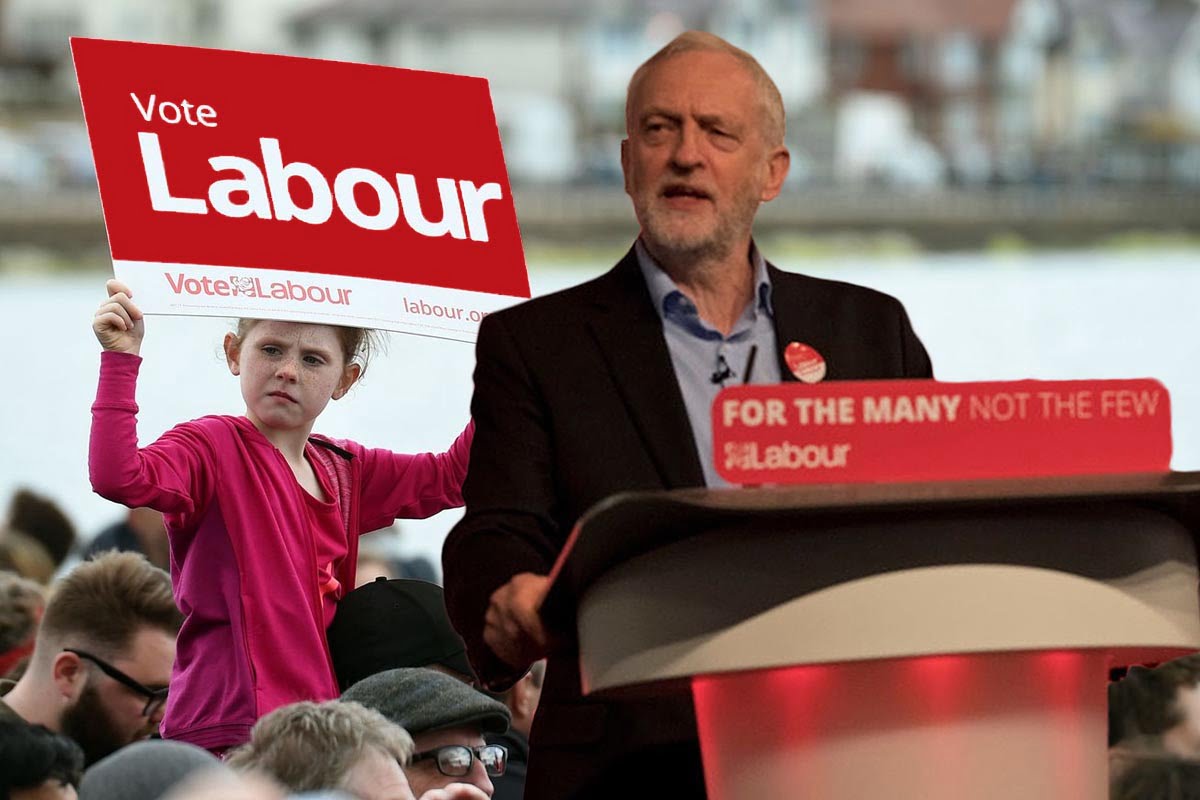The RMT transport union is in the process of consulting its members over whether they should re-affiliate to the Labour Party, which will be decided at a special conference. Socialist Appeal is of the opinion that the union should reaffiliate, as did the FBU in 2015, following Corbyn’s election as Labour leader.
In two previous articles, commenting on the position of the Socialist Party of England and Wales, we made our position clear. All socialists who wish to fight for the socialist transformation of society should today be in the Labour Party supporting Corbyn against the right wing of the party. We should find ways of getting around the barriers set up by the bureaucratic machine that still controls the apparatus of the party, while at the same time not renouncing our socialist principles and ideas.
Our position has once again been attacked by the general secretary of the Socialist Party of England and Wales, who is clearly upset by our criticisms. We have certainly touched a raw nerve. We can only assume that this must be because the Socialist Party (SP) has lost members to the Labour Party in the recent period and that there must be doubts and questions within the minds of many members.
Wrong method
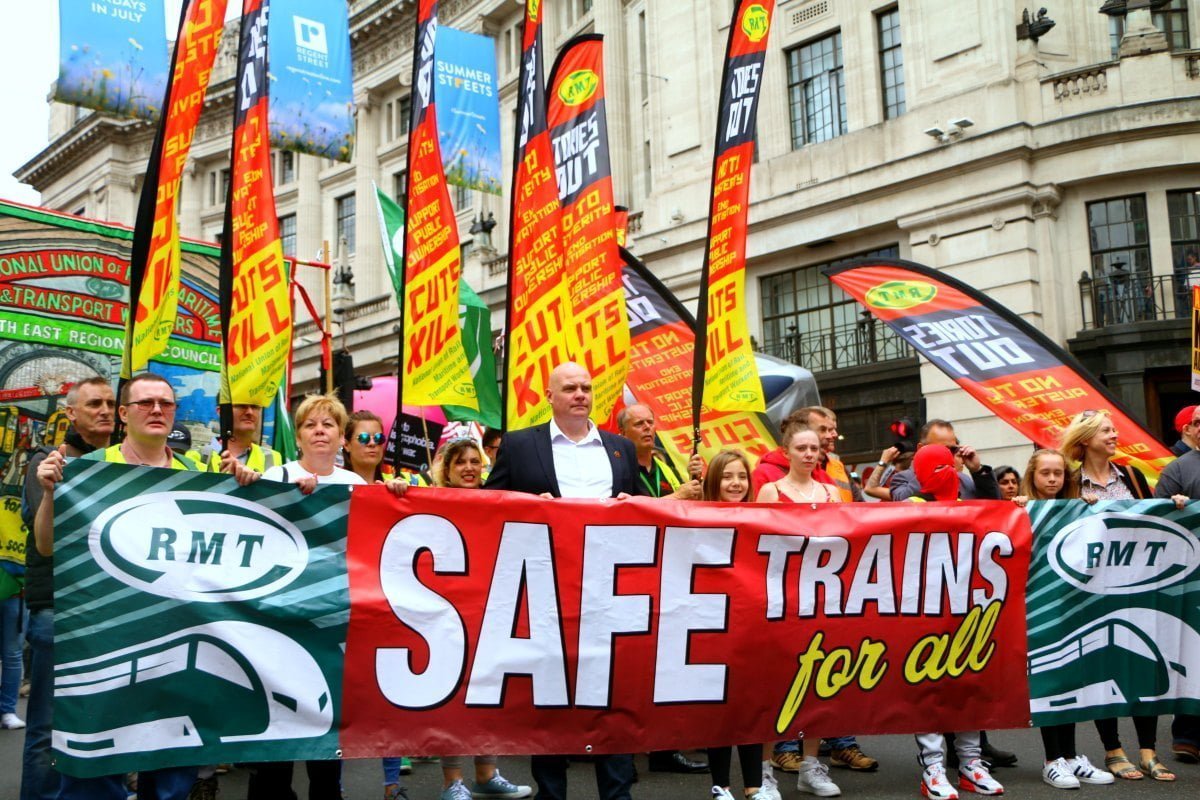 This explains why Peter Taaffe, in his latest reply, dedicates so much time and energy to spreading falsehoods and distortions about our position. His method is not to clarity things but simply to throw up as much dust as possible to cloud the issues. In this article we will run through the arguments, “to put the record straight”.
This explains why Peter Taaffe, in his latest reply, dedicates so much time and energy to spreading falsehoods and distortions about our position. His method is not to clarity things but simply to throw up as much dust as possible to cloud the issues. In this article we will run through the arguments, “to put the record straight”.
Peter Taaffe begins his “reply” by deliberately twisting what we wrote:
“He [Sewell] writes: ‘Let’s face it, given the civil war raging in the party, such conditions [effective opposition to the savage cuts carried out by Labour councils; supporting the right of expelled socialists to rejoin the Labour Party]… are certainly not going to be met any time soon’.”
But here is the original paragraph:
“They [the Socialist Party] are opposed to the union’s reaffiliation unless all those expelled are reinstated, the unions are granted greater powers and the Labour constitution is rewritten on federal lines to allow the SP to affiliate. Let’s face it, given the civil war raging in the party, such conditions are certainly not going to be met anytime soon.”
Taaffe, a master of distortion, instead of quoting what we say, has simply inserted his own words in brackets, while our actual words “the Labour constitution is rewritten on federal lines to allow the SP to affiliate” have simply vanished and replaced with “effective opposition to the savage cuts carried out by Labour councils”.
This is not a serious way of debating the ideas of other political trends within the labour movement. We can disagree and have our different points of view, but we should at least criticise others for what they actually say and not for what we want others to think they say!
Falsifying history
Why did Peter Taaffe attempt to push to one side his demand for the Labour Party to change its constitution? Is this because clearly such a change is “certainly not going to be met any time soon”? Not only does he twist our words, insinuating that we are not in favour of fighting the cuts, but he twists Labour history to justify his argument.
Taaffe claims that the trade unions placed “conditions” on the Labour Party when it was formed, demanding they commit to repealing the Taff Vale judgement. “Without this commitment, the proposed new Labour Party would have been no different to the anti-union Liberals.” Therefore, he argues, why can’t the RMT place demands or conditions on the Labour Party?
But comrade Taaffe is wrong. The Labour Party was actually founded by the trade unions after a resolution was successfully passed at the TUC in 1899, submitted by the Amalgamated Society of Railway Servants.
It is false to imply the Labour Party (known as the Labour Representation Committee) was some separate group set up by some independent people that appealed from the outside for union support. It was the unions themselves who organised the political wing of the labour movement together with a few socialist societies.
The Taff Vale judgement passed by the House of Lords in July 1901, provided an added impetus for unions to affiliate to the new party. The aim of the party was to elect Labour MPs in order to further working class legislation. There is no evidence to suggest that the unions demanded a “commitment” over the anti-union laws before they affiliated. It would not have entered anyone’s head.
Misquoting Trotsky
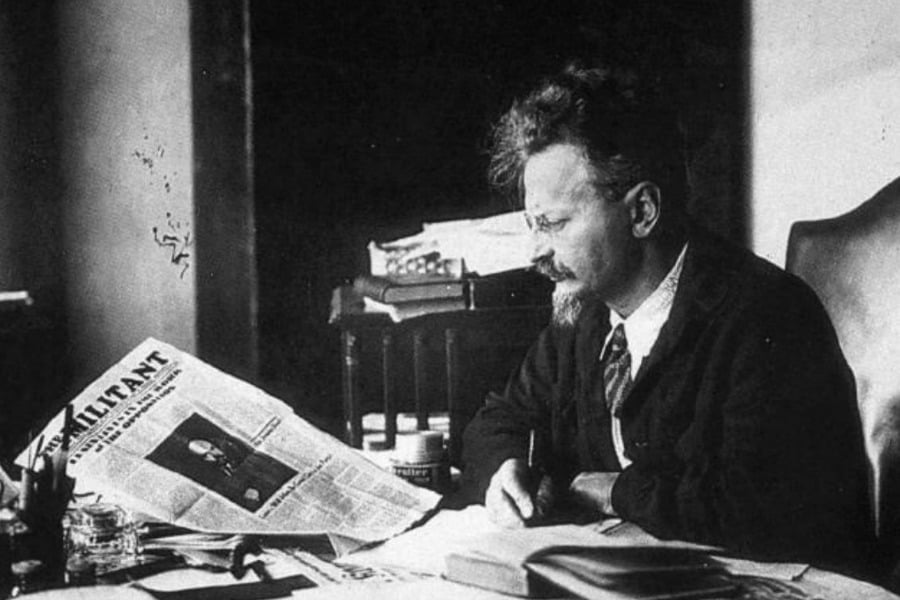 In regard to union finance, Taaffe refers to Trotsky’s book “Where is Britain Going?”, to back up his present position. But, unfortunately for comrade Taaffe, Trotsky argued precisely the opposite. He demanded that all organised workers should pay the political levy to the Labour Party, and those who refused should be forced to do so!
In regard to union finance, Taaffe refers to Trotsky’s book “Where is Britain Going?”, to back up his present position. But, unfortunately for comrade Taaffe, Trotsky argued precisely the opposite. He demanded that all organised workers should pay the political levy to the Labour Party, and those who refused should be forced to do so!
“A systematic struggle must be carried on against this [minority] to make them feel like renegades, and to secure the right of the trade unions to exclude them as strike-breakers.” (Where is Britain Going?, p.101, Trotsky’s Writings on Britain, vol.2)
Harsh words indeed! We wonder what language Trotsky would have used against the SP which actively went around the union conferences calling for unions to stop paying the political levy to the Labour Party and disaffiliate?
Ironically, the position of the SP over these past years actually coincided with Tony Blair’s position on trade union affiliation to the Labour Party, i.e. to separate the two. Blair held that position as he saw the trade unions – who could be radicalised by the developing class struggle – as a possible future threat to the right wing of the party.
Instead of arguing for the unions to disaffiliate, Marxists should have been arguing the case for greater union control of the party. To do that would require remaining within the party, not leaving it.
Disingenuously, Taaffe deliberately mixes up the decision of the RMT AGM on affiliation with an RMT press statement about the Mersey Rail dispute. The statement correctly calls on the entire Labour movement to take a stand alongside the union to fight to force back these potentially lethal cuts. But Taaffe says “Sewell and the IMT [International Marxist Tendency] stand for immediate affiliation to Labour irrespective of what ‘Labour’ cutters do.”
What the IMT stands for
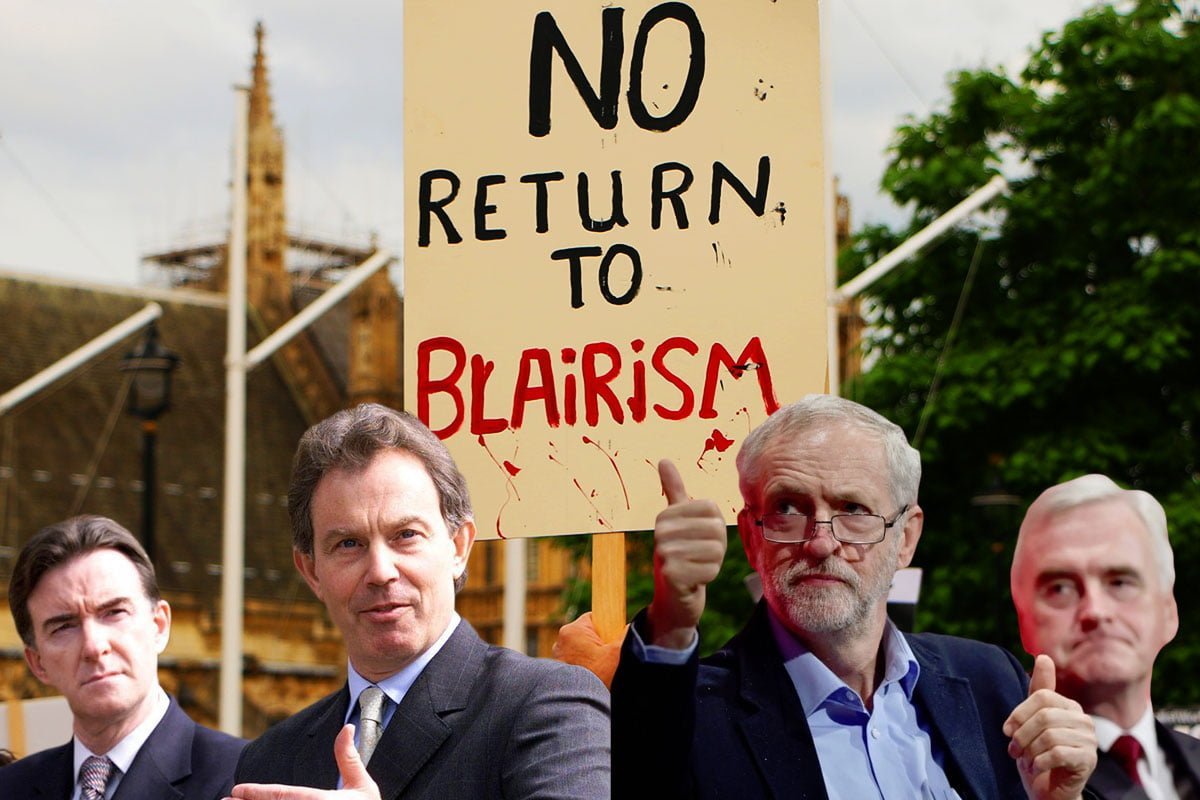 What is implied is here is that the IMT passively supports the right-wing reformists carrying out cuts. “When eye-watering cuts are being carried through we are supposed to join a local Labour Party – which bans us from membership – and move a resolution to oppose these cuts”, Taaffe states.
What is implied is here is that the IMT passively supports the right-wing reformists carrying out cuts. “When eye-watering cuts are being carried through we are supposed to join a local Labour Party – which bans us from membership – and move a resolution to oppose these cuts”, Taaffe states.
What we say is that workers should join and affiliate to the Labour Party in order to kick out the right-wing cutters! The passivity here is not in the camp of the IMT, but precisely in that of the SP which is de facto waiting for a “perfect” Labour Party to emerge. It is simply an abdication of the struggle against the right wing of the Labour Party.
Anyone who reads our paper can see for themselves that what Taaffe writes is pure nonsense. The reason for joining the Party is not to sit quiet but precisely to fight the right wing and clear out the careerists. Is it not better to oppose the cuts by organising to remove right-wing councillors altogether – deselect them – and replace them with class fighters? But that means being inside the Party.
If we take Peter Taaffe’s logic to its very end, workers should leave right-wing trade unions when their leaders sell them short. Does Taaffe recommend workers leaving these treacherous unions and setting up new “red” trade unions instead?
Genuine Marxists should urge workers to stay and fight to change their unions into fighting organisations and elect new militant leaders. It is the same principle as fighting in the Labour Party to change it, rather than standing on the side-lines.
Reading Taaffe’s reply you would think that this was the first time that Labour’s right wing has ever attacked the working class! When Peter Taaffe was a member of the Labour Party, Labour government’s carried out pro-capitalist policies, cut public spending, imposed wage restraint, supported imperialist wars abroad and sent troops into the north of Ireland. To his credit, together with all the other comrades of the Militant, he moved resolutions and mobilised opposition against such policies within the Party. Today, he seems to belittle such efforts.
The failure of TUSC
Peter Taaffe tries to portray his position as being much more realistic and concrete. An example is the following: “In the meantime, workers are losing their jobs as in Birmingham, at the hands of the right-wing Labour council, and elsewhere”.
So what is the SP’s solution to these vicious cuts? TUSC, of course. He believes that standing TUSC [the Trade Union and Socialist Coalition] candidates in local elections against Labour is far more productive in opposing the cuts. This “approach offers the possibility of assisting the powerful urge for change at the base of the labour movement.”
So what were the results of such concrete actions in Birmingham, which Taaffe mentions?
In the last local elections in Birmingham (May 2016), TUSC stood 12 candidates. Birmingham’s Labour council had drafted budget cuts of £90 million in the following financial year and £75 million in the year after. 1,218 jobs would go in 2016-17, and an unspecified number the following year.
Faced with these cuts, TUSC launched an electoral challenge. The result was a combined vote across the city of just 806 votes, coming bottom of the poll. Even the Christian Party Proclaiming Christ’s Lordship got more votes where it stood! The TUSC candidate in Kingstanding ward got 16 votes, in Green Hall 20 votes, in Quinton 28 votes, and so on.
On the other hand, the Labour Party candidates managed to win over 113,000 votes in the city and keep control over the council. TUSC managed to score 0.7% of the Labour vote. With such results, we shouldn’t think that right-wing councillors in Birmingham (and elsewhere) are shaking in their boots at the thought of another TUSC challenge!
Taaffe refers to past threats from Unite, UNISON and the CWU to withhold union money from the Labour Party. But that was in the days of Tony Blair’s New Labour – and now Jeremy Corbyn is the Labour Leader. It is a very different situation and so it is time to contract in, not contract out!
What does Taaffe have to say about the firefighters who are facing and have faced the most brutal cuts from local authorities, including Labour ones? Their union, the FBU, in spite of these attacks, re-affiliated to Labour, precisely because they now see that that with the mass influx into the Labour Party of Corbyn supporters, there is now the opportunity to shape and change Party policy, from within.
Method of Marx and Engels
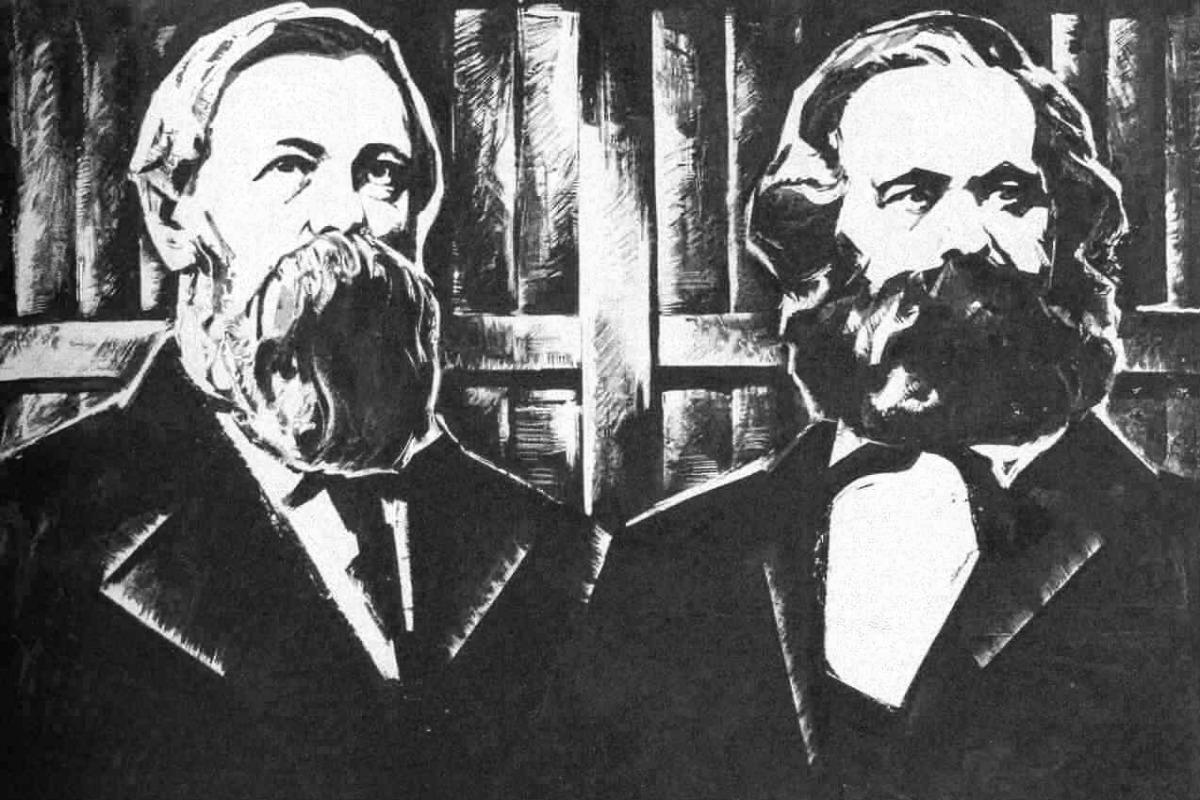 Taaffe is disparaging about the methods of the Socialist Appeal/IMT, which he says “passes for a ‘Marxist’ force”. But our method is not our own invention. It is based on the method of Marx and Engels, who, by the way, did not distort an opponent’s arguments. Their argument in the “Communist Manifesto” was that socialists must,
Taaffe is disparaging about the methods of the Socialist Appeal/IMT, which he says “passes for a ‘Marxist’ force”. But our method is not our own invention. It is based on the method of Marx and Engels, who, by the way, did not distort an opponent’s arguments. Their argument in the “Communist Manifesto” was that socialists must,
“not form a separate party opposed to the other working-class parties. They have no interests separate and apart from those of the proletariat as a whole. They do not set up any sectarian principles of their own, by which to shape and mould the proletarian movement.”
In other words, we must take the workers’ movement as it is and not what we would like it to be, in order to change it. But this is alien to the Socialist Party, which places its narrow sectarian interests above the interests of the working class.
Rather than stand shoulder to shoulder with the hundreds of thousands who have joined the Labour Party, and the millions who have been inspired by Jeremy Corbyn’s left-wing agenda, they prefer to remain outside in the fringes.
All that is healthy in the British labour movement is coalescing around Corbyn. The hundreds of thousands who have joined the Labour Party can see that the sooner the Blairites are defeated once and for all, the better for the working class. The more people who join in this fight in the Labour Party, the more it is likely to succeed. A child of six can understand this.
And that is why we are in favour of the RMT, and other unions which are not currently affiliated to Labour, to affiliate. The task is to transform the Labour Party into a real mass workers’ party, fighting on a socialist programme.
It is the position of the SP that is a passive one. The SP leaders would call on their members to join the Labour Party only after the right wing has been defeated and the left gains full control. In other words, when everyone else has done the hard work of transforming the Party, then they will honour us with their presence.
Affiliation?
Peter Taaffe is demanding that the Labour Party allow the SP to affiliate as an organisation. And if the party rejects this, then the SP refuses to consider other ways of getting into the party. Taaffe states that he had a personal chat with Jon Lansman, the head of Momentum, who advised him to dissolve the SP and join Labour as individuals. Taaffe dismissed this idea out of hand. All this amounts to a clever trick: “you see, we asked to join – affiliate – but they won’t let us.”
The truth is that the SP moved in a sectarian direction many years ago and now they are trapped in their own sectarianism.
Following on from Marx’s advice about sectarianism, why does he not propose himself disbanding the Socialist Party? After all, he set it up because he claimed that conditions did not allow his comrades to work in the Party. That was more than 20 years ago – but conditions have clearly changed now!
Taaffe should be aware of the fact that the idea of Trotskyists disbanding their organisation at different times is not new. In the 1930s, the American Trotskyists dissolved their party and joined the Socialist Party, because that was where the radicalised workers and youth were concentrating. This position was fully supported by Trotsky himself. The same was done in France and elsewhere.
In June 1949, the members of the Revolutionary Communist Party in Britain, the forerunner of Militant, took the decision to dissolve their party and call on its supporters to join the Labour Party. They then issued a public statement which concluded:
“We would prefer to have the right to enter the Labour Party as an organised body, affiliated in the same manner as the Fabian Society and other organisations. But this is not possible owing to the 1946 decision of the Labour Party regarding organisations seeking affiliation.
We have therefore dissolved our organisation and will fight as individual members, within the framework of the Constitution of the Labour Party, for the policy outlined above.
By dissolving the Revolutionary Communist Party and entering the Labour Party as individual members we consider we will best play our part in aiding the British workers to reach their Socialist goal.”
Those comrades had the courage to change course when the situation changed. Without them entering the Labour Party, there would have been no Militant tendency, and no fight in Liverpool or over the Poll Tax.
Is there not an overwhelming case for doing so today? They should also propose the winding up of TUSC, as the standing of candidates against the Labour Party is one of the major obstacles in the path of SP members being able to influence the Labour Party and work within it.
The idea that Labour will change its Constitution, while a civil war is raging within the party, is pure make believe. Peter Taaffe knows this, but doesn’t want to admit it.
A few months ago the right wing almost succeeded in keeping Jeremy off the leadership ballot. On the National Executive of the Labour Party, the support for Jeremy is still finely balanced. To think that he is going to successfully fight to change the constitution to allow the SP to affiliate is fanciful. And yet Taaffe accuses us of being out of touch!
According to the SP, support for their right to affiliate is supported “by a growing number of rank-and-file Labour Party members and trade unionists”. If so, why can’t they muster even a single Labour Party Constituency or affiliated organisation to put a motion on this issue at Labour Party conference? The reason is obvious. There is no support for it.
Within Momentum there was openness towards allowing all socialists to be active within its ranks, including the SP members, but their insistence on standing candidates against the party is what put up a huge obstacle to this.
It is therefore ironic that Taaffe wants Corbyn to appeal over the heads of the right wing and change the Constitution specifically to allow the SP to affiliate. Unfortunately, as we have seen, comrade Taaffe is not terribly keen on removing the barriers he himself has erected which prevents his participation in the Labour Party.
Setting the record straight
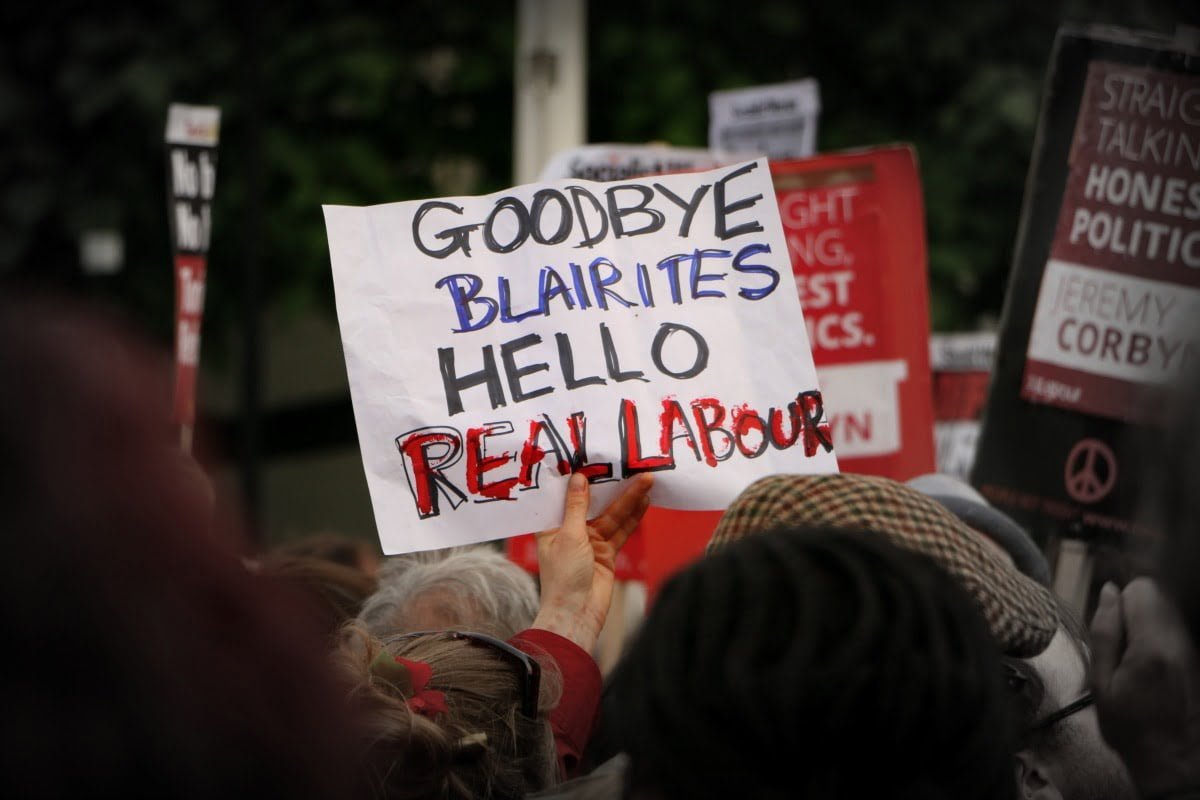 Taaffe accused us of supporting the expulsion of SP members from Momentum and the Labour Party. “We give here just some of the incidents where this has taken place”, is the reply. There are three examples given, which all refer to Momentum. Just for the record, there is not a single mention of where we were supposed to have voted for expulsions in any Labour Party. This slur has obviously fallen flat.
Taaffe accused us of supporting the expulsion of SP members from Momentum and the Labour Party. “We give here just some of the incidents where this has taken place”, is the reply. There are three examples given, which all refer to Momentum. Just for the record, there is not a single mention of where we were supposed to have voted for expulsions in any Labour Party. This slur has obviously fallen flat.
In regard to Momentum, Peter Taaffe should get his facts straight: two of the three he mentions are not supporters of the IMT. One of those from Coventry, however, has written his own public “reply”, in which he refutes what Taaffe claims.
The comrade from Hackney did not support the expulsion of the SP, but explained in a Momentum meeting that if the SP wanted to participate in Momentum, they should commit to stop standing candidates against the Labour Party. Why should Momentum be closed down for the sectarian actions of the SP? The fact is, the SP want to have their cake and eat it too. They want to be involved in Momentum and also stand candidates against Labour.
Given his false information, we hope that Peter Taaffe will do the honourable thing and publicly retract the slanders he made against us and stick to the central argument here: should Marxists be inside or outside the Labour Party? We believe they should be inside!
He claims that “the Socialist Party offers a way to continue the battle to transform Labour into a mass fighting force.” How this is to be done standing outside the party is anyone’s guess.
Despite Taaffe’s attempts to exaggerate the importance of the SP, the fact is that the SP stands out clearly in its sectarian stance towards the Labour Party. This is clear to the Left in general.
It is also clear that our arguments have certainly had an effect amongst their members and supporters. A layer has already left and joined the Labour Party. That is why Peter Taaffe has felt the desperate need to issue two replies (so far) to a group that has in his words “little influence”. The fact that he has to twist and distort our position is proof of this.
Sectarianism has always placed the interests of a small group above the interests of the movement as a whole. On our part, we will continue to fight for the ideas of Marxism inside and outside the Labour Party.
As Ted Grant always used to insist, an organisation is above all “a programme, policy and a method”. Get this wrong and you will eventually destroy yourself. Events will show who is right on this question!
See also: Why the RMT should affiliate to Corbyn’s Labour: a reply to slanders and RMT agrees to consult members on Labour Party affiliation

